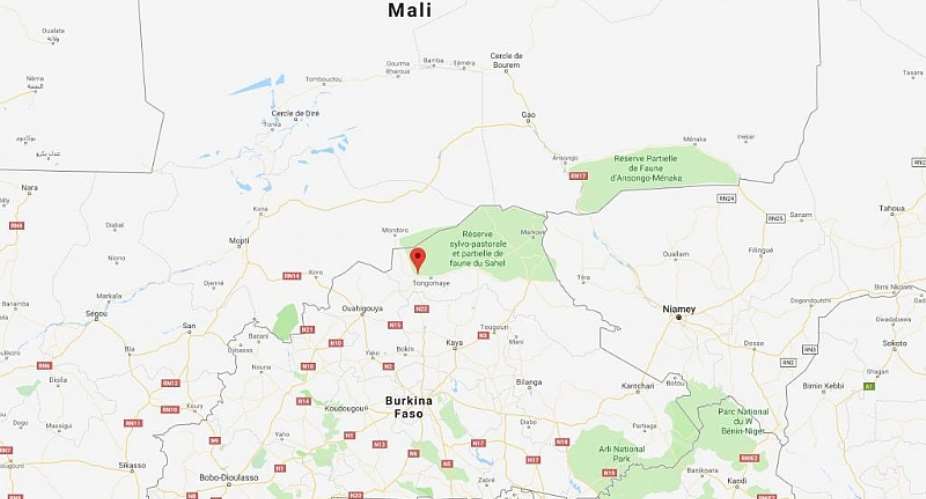An attack on a protestant Church in Burkina Faso's Soum province last Sunday killing six, marks a turning point in the west African nation's fight against terrorism. The shooting, the first of its kind, came days after half a dozen people were killed by assailants elsewhere in the country, in a sign that the violence could be shifting from indiscriminate to targeted.
"Every day there is a new attack," says Leslie Varenne, director of the IVERIS institute of international and strategic relations in Paris.
“Even if they are smaller in scale and cause fewer casualties, we are facing a real war,” she told RFI.
Burkina Faso has witnessed unrest before. Over the past three years, it has seen a string of attacks, the most spectacular perpetrated in the Ougadougou capital, where jihadists attacked the Cappuccino restaurant and the nearby Splendid Hotel.
“Now the attacks are spreading to the centre-north and centre-east,” comments Varenne.
Sunday's shooting in the town of Silgadji near Djibo, the capital of Soum province in Burkina Faso's Sahel region was the first attack on a church since sectarian violence erupted in the west African nation four years ago.
School, church targeted
It came just days after an attack on a school killing five, and was followed by a raid on a police station and a town hall in the city of Gorgadji, also in Burkina Faso's Sahel region.
None of the attacks have been claimed, but they are intensifying.
“I think definitely we should be concerned,” reckons Sten Hagberg, professor in Cultural Anthropology at Uppsala university in Sweden.
“What is very worrying is that it is not civil defense and security forces that are the targets, but it's school teachers, religious leaders, municipal advisers. Now it's targeted people on the civilian side and that is of course extremely worrying because that is the basis of building a decent society," he told RFI.
The increasing violence may be linked to a recent clean-up operation by the new authorities in the east of the country.
Deserting trouble
“The new minister for defense Chérif Sy is taking a quite active role in trying to push back different armed groups, be they terrorists or whatever we call them but pushing them back," comments Hagberg.
For IVERIS's Varenne however, these attacks against the “symbols of the state” highlight the latter's inability to bring the situation under control.
“Police officers have deserted these trouble spot areas, the army has left, hospitals have shut down (…) the strategy of the armed groups to drive out the government is working. But instead of deserting, the state needs to invest in these areas, not abandon ship.”
“I wouldn't say that is to be coward,” argues for his part Hagberg. “I would say that people working under circumstances where they find that their life is threatened, I mean most of us would do the same.”
Growing humanitarian crisis
Insecurity and violence has forced thousands to flee due to the lack of health care and basic services.
Nearly 136,000 people have been uprooted from their homes - over half of them since the start of 2019, according to the UN. Around 11,000 people have also fled to neighbouring Mali for safety.
Yet given Bamako's own insecurity problems, this is unlikely to be a safe solution.
So what are the options, if any, for a way out? Curbing intercommunal disputes is a start.
“Very often the Fulani populations are seen to be the ethnic group from where many terrorists are recruited. And tensions between farmers and herders over access to land are exploited by different terrorist groups,” says Hagberg.
Tightening borders
Another solution is a strong state.
"I would say strengthening the Burkinabé public authorities, strengthening civil society, having an international organisation intervening directly, maybe the G5 is a solution," he continues, "but so far we haven't seen much,” referring to the G5 Sahel Joint Force operation.
Varenne is skeptical about the effectiveness of outside intervention.
“The G5 is yet to be deployed. And France's Barkhane Operation has been redirected to Mali where the UN's peacekeeping mission has proved ineffective. None of the governments or international institutions have grasped how serious the threat to the Sahel region is.”
If Burkina Faso falls, it is the whole of west Africa that could stand to be affected, by violent extremism she fears.
To counter that, Hagberg calls for better cross-border cooperation. “Doing whatever is possible to collaborate on the Malian-Burkinabe frontier for instance, should be a priority."





 CODEO deploys 195 observers to monitor EC’s limited registration exercise nation...
CODEO deploys 195 observers to monitor EC’s limited registration exercise nation...
 Accra 2023: Minority demands accountability of $240million expenditure
Accra 2023: Minority demands accountability of $240million expenditure
 Man sets himself ablaze after failed attempt to kill his wife
Man sets himself ablaze after failed attempt to kill his wife
 EC targets 622,000 new voters in limited registration exercise
EC targets 622,000 new voters in limited registration exercise
 Election 2024: Mahama holds 19% lead over Bawumia among first-time voters — Glob...
Election 2024: Mahama holds 19% lead over Bawumia among first-time voters — Glob...
 Saglemi: Tenants’ Union threaten court suit against private partnership
Saglemi: Tenants’ Union threaten court suit against private partnership
 We've reduced the suffering Mahama left you – Bawumia to Ghanaians
We've reduced the suffering Mahama left you – Bawumia to Ghanaians
 It's still true, FX rate will expose weak economic fundamentals; cedi far better...
It's still true, FX rate will expose weak economic fundamentals; cedi far better...
 'I'm up to the task, competent, trustworthy, hardworking' – Bawumia
'I'm up to the task, competent, trustworthy, hardworking' – Bawumia
 EC begins nationwide limited voter registration exercise today
EC begins nationwide limited voter registration exercise today
